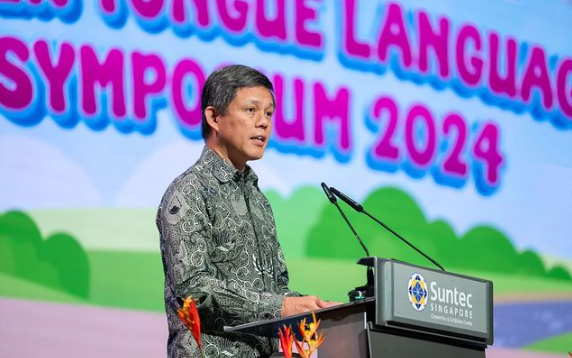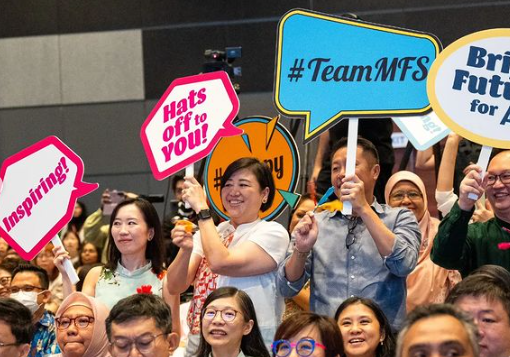
In multi-ethnic Singapore, with its four official languages, learning more than one language opens up many doors, culturally and economically. At the very least, being bilingual — speaking and writing two languages — is highly desirable.
Speaking of its importance at the Mother Tongue Languages Symposium 2024 yesterday, Singapore Minister for Education Chan Chun Sing announced three key initiatives to promote bilingualism in the country.
In a related Instagram post, he wrote: “All Singaporeans have a special power to access different universes — and that is bilingualism. The ability to speak multiple languages and understand cultures opens doors to different perspectives and much diversity.”
About the key initiatives, he wrote: “At [the September 14] Mother Tongue Languages Symposium, I announced three key initiatives for us to make bilingualism a greater part of our lives.
● “First, we will make Higher Mother Tongue Language (HMTL) more accessible. More students who do well in Chinese, Malay or Tamil, will be able to take HMTL in secondary school — so long as they obtain [an] AL1/AL2 in their Mother Tongue Language (MTL) or Distinction/Merit in Higher MTL. We will do away with the current requirement for students to have to meet a certain overall PSLE score, because we recognise that everyone has different strengths.
● “Second, we will start SOAR, a new structured reading programme in primary schools, to cultivate positive reading habits in students from young. It will meet [the needs of] a diverse group of learners. Those who can be stretched further in MTL will read books which are richer in content, while those who need more support will read books that are more accessible.
● “Third, we will pilot a programme to increase the amount of MTL exposure in two MOE Kindergartens by 30 mins, from 1 hour to 1.5 hour per day. This will gradually be scaled across more MOE Kindergartens, and we will explore increasing MTL curriculum time with other pre-school operators.”
Stating that “bilingualism in one’s early years makes a difference”, the minister’s post gave “a special shoutout” to 14 pre-school MTL teachers “for their efforts to use engaging pedagogies for our students to learn, use, and love the language”.
The education minister described bilingualism as “our identity, our lives, our advantage”. He said, “It is our strategic asset for Singapore.”

In a report on the Mother Tongue Languages Symposium 2024, the news daily CNA explained that the new initiative separated a student’s prowess in their mother tongue from their overall academic ability.
It said: “Students who do well in their Mother Tongue Language at the Primary School Leaving Examination (PSLE) will be given the chance to study Higher Mother Tongue at Secondary 1 from 2026, regardless of their PSLE overall score.”
The CNA report quoted the education minister as saying at the symposium, “As a nation comprising various ethnic and language communities, bilingualism is a cornerstone of our education system and continues to stand as a fundamental pillar of our national identity.”
Giving some details about the reading programme called SOAR, which starts in 2025, the news daily said that teachers would use “age-appropriate supplementary readers from the 2024 Primary Mother Tongue Language Curriculum”, and that reading guides and Reading Passports would make it a fun exercise for learners.


